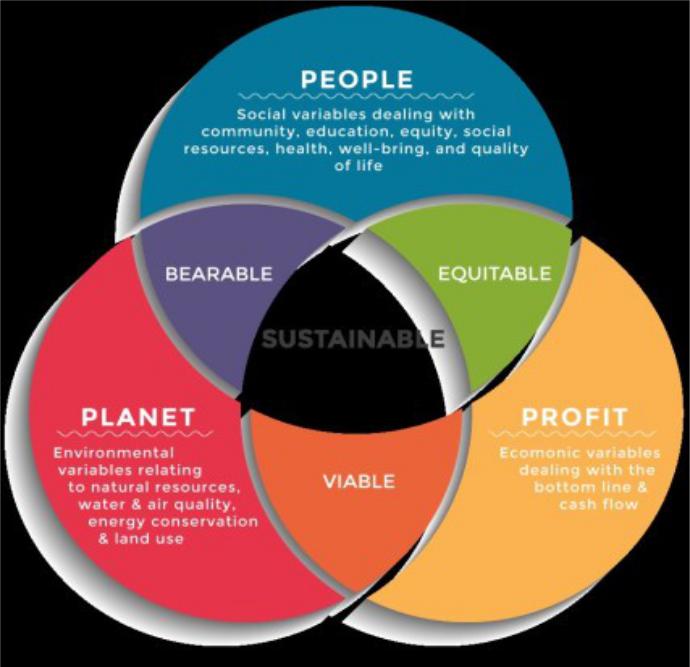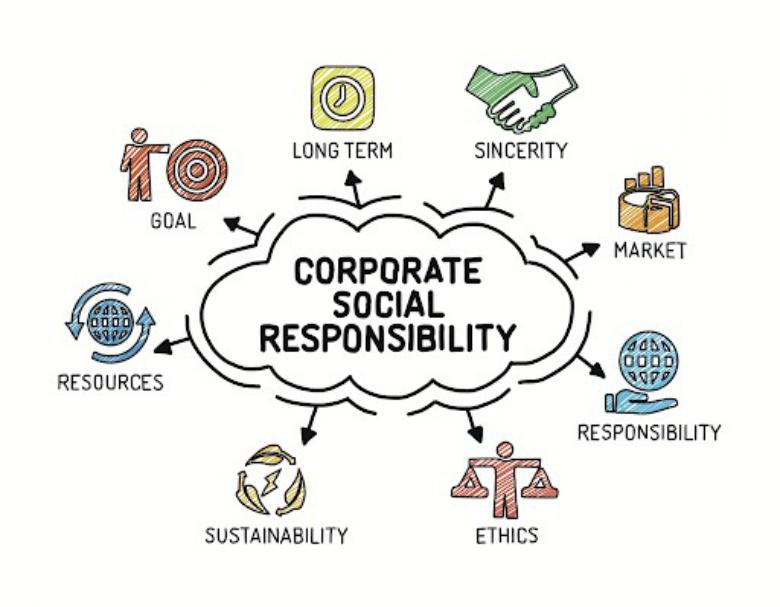
- ••Management
- •Topic 1.
- •Organization
- •“Management is the process of designing and maintaining an environment in which individuals
- •Definition
- •Importance of Management
- •Contd.
- •What do Managers Do? The Management Process
- •MANAGERS
- ••first-line managers include department head, team leader, and unit manager. For example, the
- ••Job titles such as chief executive officer (CEO), chief operating officer (COO), chief
- •A chief executive officer (CEO) is the highest-ranking executive in a company, whose
- •In both business and the public sector, board members are supposed to oversee
- •Accountability Is a Foundation of Managerial Performance. The term accountability describes the requirement
- •Effective Managers Help Others Achieve High Performance and Satisfaction. An effective manager helps
- •Are you willing to work anywhere other than in a high-QWL setting? Would
- •Managers Are Coaches, Coordinators, and Supporters. We live and work in a time
- •If we turn the traditional organizational pyramid upside down, we get a valuable
- •Terms to Define: Accountability Board of directors Effective manager First- line managers
- •Questions for Discussion 1. Other than at work, in what situations do you
- •What Do Managers Do, and What Skills?
- •Topic 2. The Five Functions of Management by Fayol's
- •What Four Functions Make Up the Management Process? Contemporary theory
- •The management process is planning, organizing, leading, and controlling the use of resources
- •Organizing is the process of assigning tasks, allocating resources, and coordinating work activities.
- •Organizing. Even the best plans will fail without strong implementation. Success begins with
- •Leading .The management function of leading is the process of arousing people’s enthusiasm
- •Controlling is the process of measuring work performance, comparing results to objectives, and
- •Managers Perform Informational,
- •Agenda Setting Agendas are important in management, and it is through agenda setting
- •Managers engage in networking to build and maintain positive relationships with other people,
- •A technical skill is the ability to use a special proficiency or expertise
- •The ability to work well with others is a human skill, and a
- •Conceptual Skill The ability to think critically and analytically is a conceptual skill.
- •Conceptual skills are important for all managers but gain in relative importance as
- •Lifelong learning is continuous learning from daily experiences. Learning agility is the
- •Rapid Review • The daily work of managers is often intense and stressful,
- •Globalization is the worldwide interdependence of resource flows, product markets, and business competition.
- •Failures of Ethics and Corporate Governance are Troublesome.
- •Workforce diversity describes differences among workers in gender, race, age, ethnicity, religion, sexual
- •personal career readiness—the combination of skills, competencies, aspirations, and goals that can move
- •Rapid Review • Globalization has brought increased use of global outsourcing by businesses
- •Intellectual capital is the collective brainpower or shared knowledge of a workforce.
- •Taylor’s scientific management sought efficiency in job performance. • Weber’s bureaucratic organization is
- •Taylor noticed that many workers did their jobs in their own ways—perhaps haphazardly
- •Taylor’s approach to scientific management can be summarized in these four core principles
- •The scalar chain principle states that organizations should operate with clear and unbroken
- •Rapid Review • Taylor’s principles of scientific management focused on the need to
- ••Follett viewed organizations as communities of cooperative action.
- •Follett suggested that making every employee an owner in the business would create
- •The Hawthorne Studies Focused Attention on the Human Side of Organizations.
- •Maslow Described a Hierarchy of Human Needs with Self-Actualization at the Top. The
- •Maslow’s progression principle is that a need at any level becomes activated only
- •Maslow’s work, along with the Hawthorne studies, surely influenced another prominent management theorist,
- •Theory X assumes people dislike work, lack ambition, are irresponsible, and prefer to
- •Argyris Suggests That Workers Treated As Adults Will Be More Productive. Ideas set
- •Argyris clearly believes that when problems such as employee absenteeism, turnover, apathy, alienation,
- •Rapid Review • Follett’s ideas on groups, human cooperation, and organizations that served
- •• Managers use quantitative analysis and tools to solve complex problems. • Organizations
- •In our world of vast computing power and the easy collection and storage
- •Analytics is the systematic use and analysis of data to solve problems and
- •Problem: A big box retailer is trying to deal with pressures on profit
- •Operations management is the study of how organizations produce goods and services.
- •An open system transforms resource inputs from the environment into product outputs.
- •Contingency thinking tries to match management practices with situational demands.
- •Quality Management Focuses
- •Any research following the scientific method will display the following characteristics:
- •Rapid Review • Advanced quantitative techniques in decision sciences and operations management help
- •Learn About Yourself
- •Ethics and Social Responsibility
- •• Ethical behavior is values driven. • Views diff er on what constitutes
- •Consider this situation. About 10% of an MBA class at Duke University were
- •Terminal values focus on desired ends or what someone wants to achieve, such
- •Views Differ on What Constitutes Moral Behavior
- •Utilitarian View A business owner decides to cut 30% of a small firm’s
- •Justice View A behavior is ethical under the justice view of moral reasoning
- •Interactional justice focuses on treating everyone with dignity and respect. For example, does
- •The moral rights view considers behavior to be ethical when it respects and
- •Cultural relativism suggests there is no one right way to behave; cultural context
- •Ethical imperialism is an attempt to impose one’s ethical standards on other cultures.
- •I define an unethical situation as one in which I have to do
- •People Have a Tendency to Rationalize Unethical Behavior.
- •“It’s not really illegal.” Wrong—this implies that the behavior is acceptable even in
- •Ethical frameworks are wellthought-out personal rules and strategies for ethical decision making.
- •Rapid Review • Ethical behavior is that which is accepted as “good” or
- •An immoral manager chooses to behave unethically. An amoral manager fails to consider
- •Ethics training seeks to help people understand the ethical aspects of decision making
- •Discrimination—“Factories shall employ workers on the basis of their ability to do the
- •Rapid Review • Ethical behavior is influenced by an individual’s character and represented
- •The way organizations behave in relationship with their many stakeholders is a good
- •Perspectives Differ on the Importance of Corporate Social Responsibility.
- •Shared value approaches business decisions with understanding that economic gains and social progress
- •Rapid Review • Corporate social responsibility is the obligation of an organization to
- •Concepts of Leader and Manager
- •Comparison bet. Leadership and Management
- •Comparison bet. Administration & Management
- •Administration Versus Management
- •Contd.
- •Productivity Orientation
- •Human Relation Orientation
- •Process Orientation
- •Decision-Making Orientation
- •Contd.
- •Systems Approach
- •Contd.
- •System approach
- •Function of Management
- •Planning
- •Contd.
- •Contd.
- •Contd.
- •Organizing
- •Organizing involves:
- •Contd.
- •Leading
- •Contd.
- •Controlling
- •Principles of management that will apply in different situations
- •“Management by Objectives”
- •Contd.
- •“Division of Labor”
- •Contd.
- •“Coordination of Activities” or “Convergence of work”
- •“Substitute of Resources”
- •“Functions Determine Structure”
- •“Delegation of Authority”
- •Contd.
- •Contd.
- •“Management by Exception”
- •General Principles of Management-
- •Division of work: This is the specialization that economists consider necessary for efficiency
- ••Subordination of individual to general interest: This is self explanatory when the two
- •Initiative: Initiative is conceived of as the thinking out and execution of a
- •The Environment
- •Decision making/Problem Solving Steps
- •Six Criteria to Systematically Evaluate Ideas
- •The Overall Planning Process
- •Strategic Goals
- •How Goals Facilitate Performance
- •Plans According to Extent of Recurring Use
- •The Strategic Management Process
- •The functional structure of organization
- •Matrix organisation structure
- •Tall organisational structure with seven
- •Flat organisation with three(3) levels
- •Methods of Horizontal Co-ordination
- •Horizontal coordination methods for increasing information-processing capacity
- •Formal and informal groups in an organisation
- •The Control Process
- •Steps in the control process
- •Four levers of strategic control
- •Thank You

Discrimination—“Factories shall employ workers on the basis of their ability to do the job, not on the basis of their personal characteristics or beliefs.” • Forced labor —“Factories shall not use any prison, indentured or forced labor.” • Working conditions—“Factories must treat all workers with respect and dignity and provide them with a safe and healthy environment.” • Freedom of association —“Factories must not interfere with workers who wish to lawfully and peacefully associate, organize or bargain collectively.”

Rapid Review • Ethical behavior is influenced by an individual’s character and represented by core values and beliefs. • Kohlberg describes three levels of moral development—preconventional, conventional, and postconventional—with each of us moving step-by-step through the levels as we grow ethically over time. • Ethics training can help people better understand how to make decisions when dealing with ethical dilemmas at work. • Whistleblowers who expose the unethical acts of others have incomplete protection from the law and can face organizational penalties. • All managers are responsible for acting as ethical role models for others. • Immoral managers choose to behave unethically; amoral managers fail to consider ethics; moral managers make ethics a personal goal. • Formal codes of conduct spell out the basic ethical expectations of employers regarding the behavior of employees and other contractors.

The way organizations behave in relationship with their many stakeholders is a good indicator of their underlying ethical character. When we talk about the “good” and the “bad” in business and societal relationships, corporate social responsibility is at issue. Oft en called CSR, it is defined as an obligation of the organization to act in ways that serve both its own interests and the interests of its stakeholders, representing society at large. Even though corporate “irresponsibility” seems to get most of the media’s attention, we can’t forget that a lot of responsible behavior is taking place as well. Increasingly, this has become part of what is called the triple bottom line—how well an organization performs when measured not only on financial criteria but also on social and environmental ones. Some call this triple bottom line the 3 Ps of organizational performance—profit, people, and planet



Perspectives Differ on the Importance of Corporate Social Responsibility.
The socioeconomic view of CSR is that businesses should focus on contributions to society, not just making profits.
The classical view of CSR is that business should focus on the pursuit of profits.
A virtuous circle exists when CSR leads to improved financial performance that leads to more social responsibility.

Shared value approaches business decisions with understanding that economic gains and social progress are interconnected.
The benefit corporation, or B Corp, is legally committed to both creating profits for shareholders and creating value for employees, communities, and the environment as stakeholders.
A social business is one in which the underlying business model directly addresses a social problem.
Social entrepreneurs take business risks to find novel ways to solve pressing social problems.
A social responsibility audit measures and reports on an organization’s performance in various areas of corporate social responsibility


Rapid Review • Corporate social responsibility is the obligation of an organization to act in ways that serve both its own interests and the interests of its stakeholders. • In assessing organizational performance today, the concept of the triple bottom line evaluates how well organizations are doing on economic, social, and environmental performance criteria. • Criteria for evaluating corporate social performance include how well the corporation meets economic, legal, ethical, and discretionary responsibilities. • The argument against corporate social responsibility says that businesses should focus on making profits; the argument for corporate social responsibility says that businesses should use their resources to serve broader social concerns. • The concept of sustainable development refers to making use of environmental resources to support societal needs today while also preserving and protecting the environment for use by future generations. • Social businesses and social entrepreneurs pursue business models that help to directly address important social problems.
